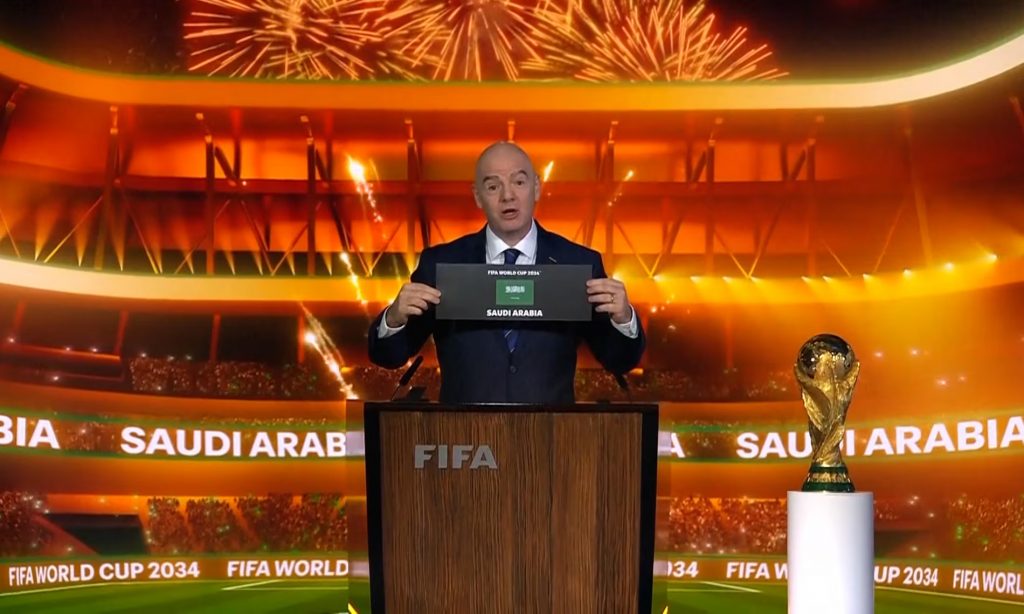FIFA is under intense scrutiny after rejecting calls to independently monitor the treatment of migrant workers in Saudi Arabia, the host nation for the 2034 World Cup. Human rights activists and labour organizations have criticized the governing body, accusing it of neglecting workers’ rights while Saudi Arabia continues its rapid ascent in global sports.
The African Regional Organisation of the International Trade Union Confederation (ITUC-Africa), representing 18 million workers, had urged FIFA to ensure stronger protections for migrant workers. They demanded an end to the controversial kafala labour system and called for independent monitoring to assess working conditions. However, FIFA dismissed these demands, claiming existing mechanisms are sufficient.
FIFA President Gianni Infantino acknowledged Saudi Arabia’s poor human rights record when announcing the host nation but expressed optimism that the tournament could drive social improvements. He stated, “The world will be watching, and we expect positive human rights impacts and lasting change.”
Despite these assurances, organizations like Amnesty International have criticized FIFA’s lack of commitment to safeguarding workers. Steve Cockburn, Amnesty’s head of labour rights and sport, warned that without adequate protections, the lives of many workers could be at risk.
Saudi Arabia’s bid for the World Cup includes ambitious projects, such as constructing 11 new stadiums, expanding transport networks, and adding 185,000 hotel rooms. Migrant workers, who make up nearly 10 million of Saudi Arabia’s population, are expected to play a significant role in these developments.
However, FIFA’s general secretary, Mattias Grafström, claimed that Saudi Arabia has committed to building a “workers’ welfare system” to oversee labour rights compliance. Critics argue that the official bid documents lack concrete details, instead proposing a governance framework and partnerships with organizations like the UN and ILO without clear plans.
Prominent voices like former South African politician Andrew Feinstein and Amnesty Norway’s Frank Conde Tangberg have condemned FIFA’s decision. Feinstein criticized the organization’s stance on social media, while Tangberg stated, “FIFA’s rejection of increased monitoring cements its lack of commitment to human rights.”
The decision has amplified concerns about the treatment of migrant workers and FIFA’s role in ensuring ethical standards in global sporting events.

